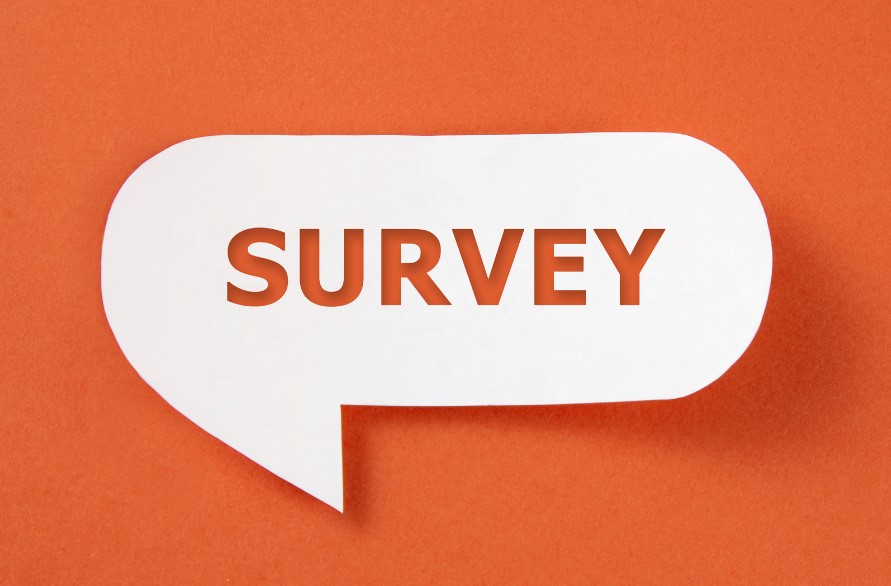The survey was conducted on the initiative of the "Ukrainian Veteran Fund" Of the Ministry of Veterans Affairs of Ukraine. Funded by the Sociological Group "Rating"
• Based on the findings of the twenty-seventh nationwide survey conducted by the Sociological Group "Rating" under the initiative of the "Ukrainian Veterans Foundation" of the Ministry of Veterans Affairs of Ukraine from March 2 to 5, 2024, 55% of respondents reported having close relatives who participated in military activities within Ukraine from 2014 to 2021. Furthermore, 70% of participants mentioned having close ones who have either served or are currently serving on the front lines since February 24, 2022. Comparatively, there is an observed increase in the number of individuals with close relatives currently engaged in frontline service, as opposed to previous survey results.
• 41% of respondents acknowledge the possibility of becoming a veteran in the future, while 53% hold the opposite view. The discussion about the potential of becoming a veteran was most prevalent among residents of western regions, the youngest respondents, males, and those who have relatives and close ones involved in warfare since 2014 and are currently serving.
• In society, the military consistently receives the highest levels of trust: 96% express trust in ATO veterans currently in active service, 94% trust the Armed Forces of Ukraine and veterans involved in the present conflict, and 84% trust ATO (JFO) veterans from 2014-2021 who are not currently engaged in warfare. Regardless of region or age, the overwhelming majority places trust in these demographic groups.
• Among the potential challenges that veterans of the Russian-Ukrainian war may face upon returning from service, the top concerns include psychoemotional instability, issues with physical health, difficulties in accessing medical assistance, the absence of inclusive spaces and adapted workplaces for individuals with disabilities, as well as challenges related to the processing of social benefits. Respondents also consider the likelihood of conflicts within the family, unemployment, societal misunderstandings, the mismatch of military experience for civilian life, and substance abuse, including alcohol or drugs. Approximately half of the respondents mentioned the risk of suicides among veterans. About a third of those surveyed pointed out the risks of legal violations and involvement in criminal activities. However, compared to the September 2023 survey, there is an increase in the number of individuals recognizing risks in all the aforementioned issues. The presence of these problems is felt more acutely by close associates of veterans who have been in combat since 2014 and are currently serving.
• The number of those who believe that the state fulfills its obligations to veterans of the Russian-Ukrainian war continues to decrease: in August 2022, it was 69%, in January 2023 – 53%, in September 2023 – 33%, and in March 2024 – 25%. Currently, more than 60% hold a different opinion. Negative views on the state's fulfillment of obligations towards veterans are most commonly expressed by residents of western regions and those who have close relatives involved in warfare since 2014 and are currently serving.
• 76% of respondents believe that society currently respects veterans. However, compared to the September 2023 survey, their number has remained almost unchanged (79% in September). The opposite opinion is held by 18% of individuals, with a higher proportion among residents of western regions and the younger demographic.
• The number of those who indicated being well or fairly informed about veterans' issues has slightly increased (56%). 42% mentioned that they are not informed. A higher percentage of the latter group is found among residents of eastern regions, older individuals, and women.
Audience: the population of Ukraine aged 18 and older in all regions, except for the temporarily occupied territories of Crimea and Donbas, as well as territories where there was no Ukrainian mobile connection at the time of the survey. The results were weighted using current data from the State Statistics Service of Ukraine. The sample is representative by age, gender, and settlement type. Sample population: 1000 respondents. Survey method: CATI (Computer Assisted Telephone Interviews). The margin of error of the study with a confidence probability of 0.95: does not exceed 3.1%. Dates: March 2-5, 2024.





















